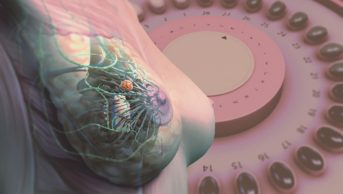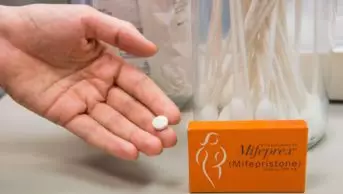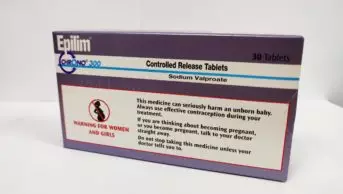
Shutterstock.com
Hormone replacement therapy (HRT) is not associated with all-cause, cancer or cardiovascular death, according to the results of an 18-year follow-up study of women aged 50–79 years who took HRT for 5 to 7 years[1]
.
The study assessed mortality outcomes in 27,347 US multi-ethnic postmenopausal women who had enrolled in two randomised clinical trials between 1993 and 1998 and were followed up through December 2014.
The results show that it is appropriate to offer HRT to women who are experiencing menopausal symptoms such as hot flushes and night sweats, according to the researchers.
In one of the trials, women were randomised to receive conjugated equine oestrogen (CEE), plus medroxyprogesterone acetate (MPA) or placebo for a median of 5.6 years. In the other trial, women were randomised to receive oestrogen alone or placebo for a median of 7.2 years. The CEE plus MPA trial and CEE-alone trials were stopped early due to an increased risk of breast cancer and stroke, respectively, but researchers continued to follow the womens’ progress until 2014 to produce the latest results.
Outcomes of trials
In total, 7,489 deaths occurred in the pooled cohort during the 18-year follow-up time, 1,088 deaths were during the intervention phase and 6,401 were during post-intervention. However, CEE plus MPA and CEE alone were found not to be associated with increased or decreased risk of all-cause, cardiovascular, or total cancer mortality. All-cause mortality was found to be 27.1% in the pooled HRT group and 27.6% in the pooled placebo group (hazard ratio, 0.99 [95% confidence interval, 0.94-1.03]).
The researchers also examined the cohort by 10-year age groups comparing younger women, aged 50–59 years, to older women, aged 70–79 years, and found that the trend by age group was statistically significant during the intervention phase but not during the cumulative follow-up period.
Although outcomes from both trials have been reported before, this is the first time that all-cause and cause-specific mortality outcomes have been looked at in relation to HRT.
JoAnn Manson, study leader from Brigham and Women’s Hospital, Boston, said that the findings may be helpful to clinicians making decisions about prescribing the drug.
“The results suggest that current guidelines are correct in that it is reasonable to treat women with moderate to severe hot flushes and night sweats as they may derive benefit from HRT at least in early menopause,” she said.
“Hormonal treatment for prevention of cardiovascular disease or other chronic disease would not be advisable in view of no evidence of benefit in terms of all-cause mortality.”
Findings welcomed
The Royal College of Obstetricians and British Menopause Society issued a joint comment welcoming the results of the trial but said that the question around the possibility of decreased mortality for women who start hormone therapy within 10 years of the menopause is yet to be answered.
“These findings should be helpful to both women and doctors, especially when considering whether to start hormone therapy,” said Heather Currie, a spokesperson for the two organisations.
“Even though not every woman requires hormone therapy, they should have accurate information about menopause and treatment options. Hormone therapy can be a safe and effective treatment for menopausal symptoms, particularly with the management of hot flushes.
“For each woman, however, the risks and benefits are different, depending on her medical history and her symptoms.”
The study concluded that the results would not support use of HRT for reducing chronic disease or mortality and that it is unclear whether the benefits would outweigh the risk with longer duration of treatment.
References
[1] Manson J, Aragaki A, Rossouw J, et al. Menopausal hormone therapy and long term all-cause and cause-specific mortality: the Women’s Health Initiative randomized trials. JAMA 2017. doi: 10.1001/jama.2017.11217


